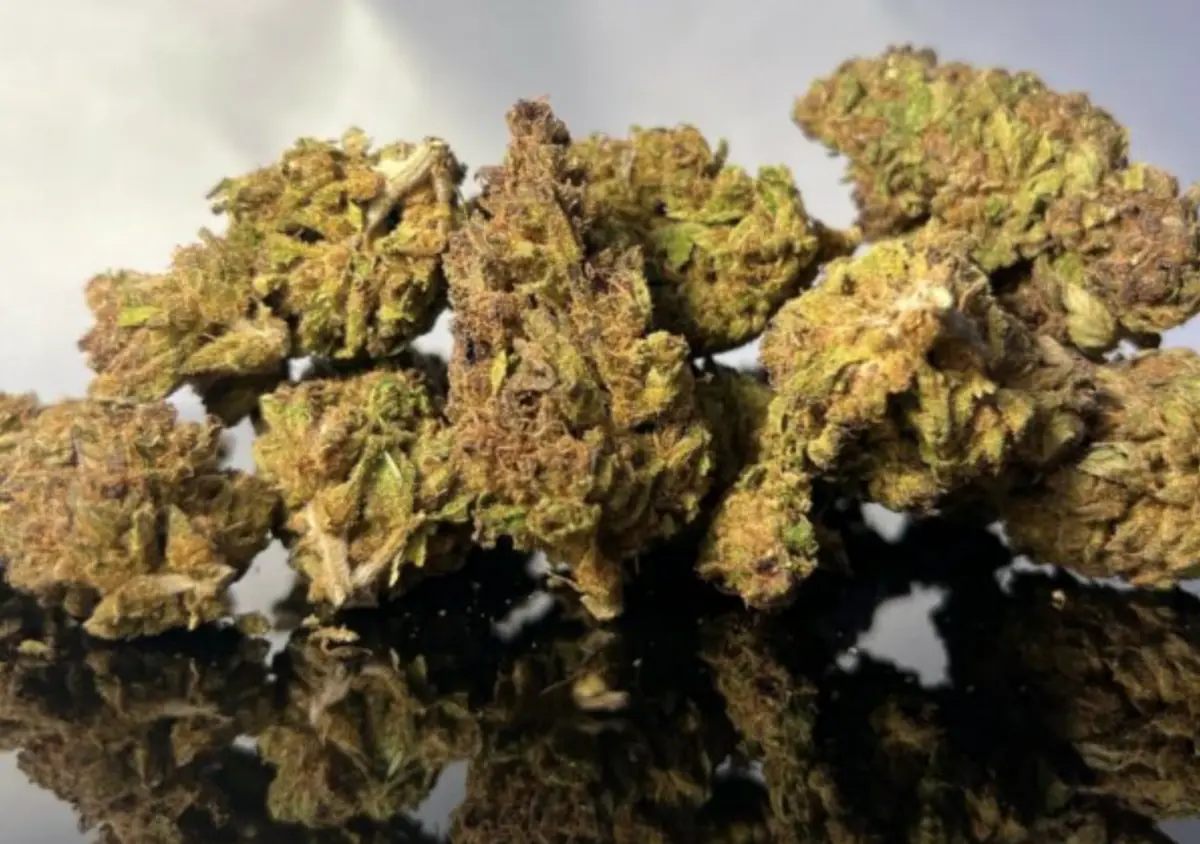Hemp THCA flower offers holistic support to the endocannabinoid system. This non-psychoactive cannabinoid can stimulate appetite and reduce nausea. It also has anti-inflammatory and neuroprotective properties.
Anti-Autoimmune Effects
THCA does not bind with CB1 receptors. Instead, it appears to act via indirect mechanisms to stimulate the release of certain neurotransmitters that help regulate our body’s immune system. This may explain why THCA has been linked to anti-inflammatory properties and its potential for neuroprotection. Research also shows that terpenes like beta-caryophyllene and myrcene may have anti-inflammatory effects on autoimmune diseases such as type 1 diabetes, Crohn’s disease, ulcerative colitis, rheumatoid arthritis, Sjogren’s syndrome, and lupus.
Preclinical studies have shown that THCA and other non-psychoactive cannabinoids, like CBD, can inhibit the inflammatory response and slow down overactive T cells responsible for autoimmunity. In addition to that, THCA can help to reduce stress and anxiety, which is a known trigger for many autoimmune disorders.
THCA is available in various hemp flower strains with different potency levels and effects. For example, indica dominant selections provide relaxing sensations best suited for evening use, while sativa leaning cultivars offer stimulating head highs perfect for daytime consumption. You can find high THCA hemp flower online from third-party lab certificates and experienced customer service.
Anti-Inflammatory Properties
As a precursor to THC, THCA possesses powerful anti-inflammatory properties. It is a potent TRPA1 and TRPM8 agonist and an inhibitor of cyclooxygenase enzymes COX-1 and COX-2. THCA is a strong candidate for treating arthritis, lupus, and inflammatory bowel diseases.
Research also shows that THCA inhibits the production of cytokines and neurotransmitters that contribute to inflammation. By inhibiting the production of these substances, THCA can alleviate many common symptoms of inflammation, including pain, nausea, and drowsiness.
Despite its powerful anti-inflammatory properties, THCA does not cause psychoactive effects. THCA is a more giant molecule than THC and does not fit into the cannabinoid receptors. Instead, it binds to adrenergic receptors in the brain, where it can reduce anxiety and stress levels without affecting cognition.
THCA can produce analgesic effects when smoked because it activates the endocannabinoid system’s opioid receptors and lowers pain stimulus-response. This has the potential to revolutionize the medical treatment of chronic pain by providing a natural, non-addictive alternative to prescription drugs.
THCa is federally legal to purchase, possess, and consume. However, you must check your local laws to comply with applicable restrictions. Additionally, be sure to decarboxylate your THCA before consuming it. THCA can be incorporated into your daily routine by adding it to juices and salads or using it in a vape pen.
Analgesic Effects
THCA, like all cannabinoids, interacts with the body’s endocannabinoid system. This complex network of receptors and endocannabinoids can help to regulate and enhance physiological functions like pain management. Unlike THC, THCA does not induce psychoactive effects when consumed rawly. However, THCA can produce some THC-like effects when heated through vaping or smoking and by interacting with CB1 receptors in the brain.
Unlike THC, THCA has a carboxyl group, which makes it inactive against the CB1 receptors and prevents it from binding to them. When THCA is exposed to heat through vaporization or combustion (smoking, vaping, or cooking), the carboxyl group is removed, and THCA converts to THC via decarboxylation. This process produces THC-like effects that are mild and less intense than THC.
Many consumers report that THCA flower or Delta 9 THC gummies effectively relieve headaches, menstrual cramps, and other types of chronic pain. This is likely due to THCA’s ability to trigger the production of endocannabinoids that may inhibit the neurotransmitter anandamide in the body, which can help reduce pain perception and inflammation response.
Consumers interested in THCA can choose from various products, including dried and pre-rolled buds, vape pens, and edibles. Each consumption method delivers unique experiences and benefits depending on the strain, dosage, onset time, duration, and individual tolerance. Indica dominant cultivars tend to impart calming sensations perfect for a relaxing evening session, while sativa leaning strains offer more stimulating head highs best suited for daytime use.
Neuroprotective Effects
THCA may help with neurodegenerative diseases like Huntington’s and Alzheimer’s. Research has shown that THCA can stimulate the production of endocannabinoids in the brain, particularly anandamide. These endocannabinoids help to modulate pain perception and reduce inflammation. THCA’s neuroprotective properties may help those with chronic pain conditions like fibromyalgia, PTSD, migraines, and nerve damage.
Unlike THC, THCA is non-psychoactive and does not produce the high associated with cannabis consumption. However, it provides various health benefits that can contribute to holistic wellness.
THCA is non-psychoactive in its raw form and requires decarboxylation to become psychoactive, which means heating it until it reaches 105 degrees Celsius. The carboxylic acid group disappears due to heat, allowing THCA to bind with cannabinoid receptors in the brain and produce its effects. Purchasing pre-rolled joints is a great way to try out THCA flowers and enjoy the benefits without undergoing the decarboxylation process yourself. Whether you are looking for a pain relief option or something to help with mental clarity, THCA hemp flowers are a powerful tool to add to your daily routine. THCA flower is subject to stringent standards and testing, which ensures a premium cannabis experience.










Hello!! My name is Annabella
I love to eat, travel, and eat some more! I am married to the man of my dreams and have a beautiful little girl whose smiles can brighten anyone’s day!